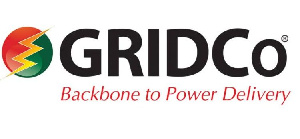Finance ministry releases review report on Ghana’s VAT system

The report, developed in collaboration with researchers from the UK’s Institute for Fiscal Studies, examines the structure and administration of Ghana’s VAT system and related levies.
It provides an in-depth analysis of short and long-term revenue trends, drawing on established VAT policy principles, international best practices, and detailed tax data.
The report also incorporates qualitative insights into how the VAT system and levies operate within the Ghanaian context.
The analysis and findings of the report have already influenced tax policymaking in Ghana, guiding the strategies outlined in the Medium-Term Revenue Strategy (MTRS).
The government will also consider additional policy and administrative reform options based on the report’s recommendations.
See key findings from the report below:
• That Ghana’s VAT system is progressive, with VAT making up a larger share of expenditure for richer households than poorer households, in large part reflecting exemptions for basic foodstuffs. But in cash-terms, the biggest beneficiaries of many exemptions are richer households, which is why the Government of Ghana is carefully reviewing exemptions to ensure they are as effective as possible as part of the Medium-Term Revenue Strategy (MTRS).
• Many businesses below the VAT registration threshold choose to register for VAT, but survey data suggest that there are many businesses above the threshold that should register but do not. A significant share of registered taxpayers also fail to file tax returns or file a ‘null’ return with zero sales and purchases. This is one reason why improvements in both voluntary compliance and enforcement are an important part of Ghana’s MTRS.
• The restriction of the VAT Flat Rate Scheme (VFRS) – a turnover tax scheme previously available to all wholesalers and retailers – to small taxpayers in 2023 is likely to have both boosted tax revenues and focused the benefits of reduced administration and compliance costs on those who can benefit most from this.
• The composition of economic growth in Ghana in the second half of the 2010s, led by investment and exports, was not conducive to growth in revenues from VAT – which is a consumption tax. This is likely to be a factor in why VAT revenues did not grow as fast as may have been expected given overall economic growth and increases in tax rates.
Source: www.ghanaweb.com





